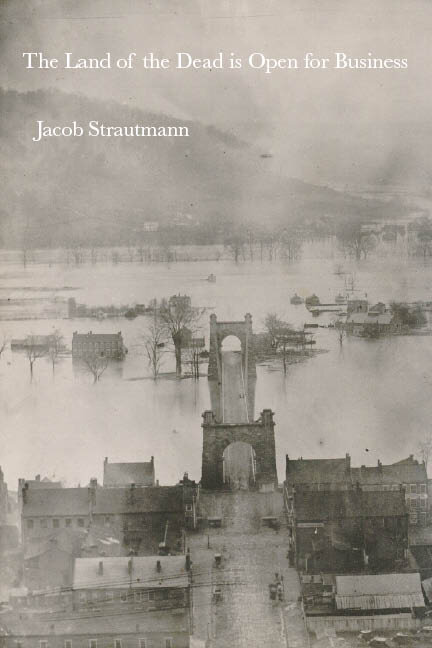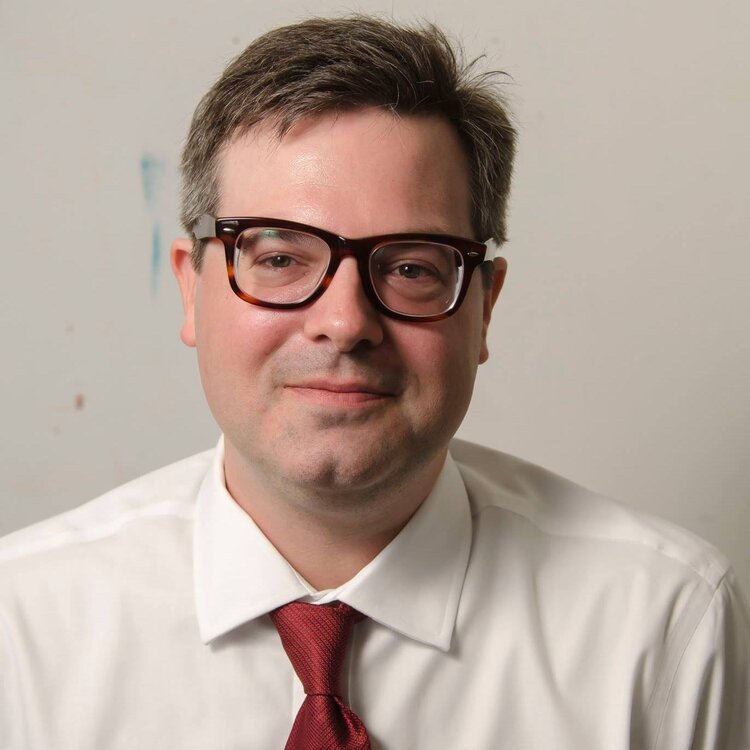Do you have a writing routine? A favorite time or place to write?
I write between 8:00 a.m. and 9:00 a.m., weekdays, September to mid-June. I go to work an hour early and set up in a nearby coffee shop. Finding this schedule wasn’t easy. For years I tried to fit writing into weekends or after the kids were asleep, but I could never focus for long (too many obligations in the moment, too tired, too guilty), and so I spent about ten years very frustrated, not turning much out, sending out even less. But my partner Valerie found this routine for me and made it happen. I was surprised to learn I’m a morning writer, and that an hour a day is enough.
Where do your poems most often come from—an image, a sound, a phrase, an idea?
My friend Mike, a terrific musician who wrote most of the tunes our college emo-punk band Hawthorne performed, once demonstrated something I lean on at some point in every poem. He was a talented melodist, able to shape a tune over a chord progression he invented or borrowed, and it was the type of skill I thought he should solely focus on — why mess with all the distortions, pedals, and amps when he had the ability to write something someone could sing along with? It was a mistake I was making with my own early attempts at poetry. I was taking my newfound vocation too seriously. Once in our dorm, one of my candle-lit Parnassian moments was interrupted by a cat-like squall. Next door I found Mike with his electric guitar shoved inside the broken mesh of an amp. He was smiling. “Doesn’t this sound cool?” It did, but what did it mean? A few weeks later I heard him perform a song before a small crowd, and that sound was its heartbeat, the meaning arrived.
I’ve never found a ritual that works the same from poem to poem. Each of the options you give have seeded poems for me, most start in remembering and end in discovery, and I would add to your list: dreams, misheard lyrics, imagined history.

Tell us a little bit about your new collection: what’s the significance of the title? are there over-arching themes? what was the process of assembling it?
Interstate highway signage going into my home state of West Virginia is oddy contentious. For years, it was “Wild and Wonderful West Virginia” —a slogan picked up by the first Arch Moore administration. Later, I noticed the “wild” disappear in a number of places—too suggestive perhaps. In 2006, Governor Manchin switched the signs to read “West Virginia is Open for Business” — a real downer. After he became Senator Manchin, it was discovered that all those changed-over highway signs had been made with steel manufactured in China, not West Virginia, and so the old signage went back up. Around the same time the fracking boom took over the counties in the Northern Panhandle where I grew up and went to school. Coal companies, too, seemed to have a renewed life, and the landscape I grew up in began to be changed utterly. The home my grandfather and father built is currently damaged by recent coal-related subsidence. The book started out with my memories of what I thought was an unusual and at times unusually dark place, shades of “wild”, but by the end I felt I was also trying to preserve something “wonderful” before it is gone.
Who are your major poetic influences, your poetic ancestors, so to speak? Are these influences seen, directly or indirectly, in the new collection?
James Wright when he’s looking out across the Ohio River, Muriel Rukeyser’s witness in her The Book of the Dead, her ventriloquism after transformation, Irene McKinney’s voice. Wright’s Wheeling prostitutes pouring into the Ohio and rising on the other shore to dry their wings make a myth from the news and an Ovidian turn I try to steal when I can. Rukeyser’s weaving of sources from and about the Hawk’s Nest Tunnel Disaster was my guide when the book turned towards preservation, and when I write about our industrial disasters. Irene McKinney, who I imagine briefly in the book, was the first poet I ever heard read. It was in the basement of the Moundsville-Marshall County Library, and I was 19, starting to become interested in poetry, but not really sure what poetry was. She began her poem “Twilight in West Virginia: Six O’Clock Mine Report,” and I was hearing the AM radio of my entire childhood, the conveyor belt rhythm listing the coal mines that would be operational the next day: “Consol. No. 2 / will not work: Consol. No. 2 will not / work tomorrow.” That’s when I was sure.
What are you working on now that your book is out in the world?
I’ve been writing as many poems as I can about anything other than West Virginia. I’m a few drafts into a batch of poems that seem to be cohering under a title. I’m not sure it’s the next book of poems, but sometimes, when I’m confident, it is.
What art, writing, or media is moving you right now?
George Mackay Brown’s Collected Poems are constantly surprising me. I was moved recently by a performance of Amir Nizar Zuabi and Corinne Jaber’s Oh My Sweet Land, a play about what’s happening in Syria right now. And I’m staggered by Julia Spicher Kasdorf and Steven Rubin’s Shale Play: Poems and Photographs from the Fracking Fields, a chronicle of what we’re doing to ourselves for energy.
Sample poem from The Land of the Dead is Open for Business:
Two Doves Gone When He was Gone (Windmills of Grief)
There is no heaven, but tall grasses
shimmer the wind, milk-heavy with seed.
The field lifts a wing.
She wrings a cloth in cold dishwater,
brushes with the back of her wrist
an eyelash, and lets the caravan arrive
joyless as an Apostle.
Her porch rings with “The King of Love
my Shepherd Is,” with what they’ve read
of comforting, the iron stylus and the rock,
fruit basket cellophane, tupperware steaming
with the balm of pierogies. She hugs each
man and woman thank you and sees them off.
A tiny thing
flits yellow and black, renewing farewell.
The clothesline jumps.
Behind tired clouds the crows imagine human lives.
Buy The Land of the Dead is Open for Business

Raised in Marshall County, W.Va., Jacob Strautmann is a recipient of the Massachusetts Poetry Fellowship from the Massachusetts Cultural Council. His poems have appeared in the Boston Globe, Agni Magazine, Salamander Magazine, Southern Humanities Review, Blackbird, and others. He is the Department Manager of Economics at Boston University, where he also teaches playwriting. He lives in Belmont, MA with his partner Valerie Duff and their two children.
